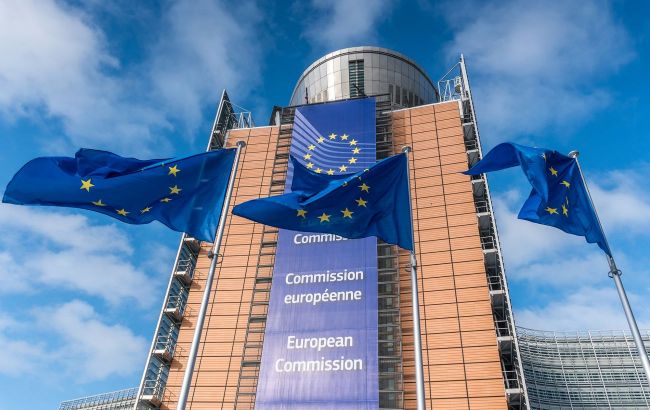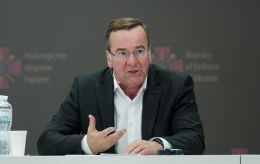EU ambassadors approve plan to phase out Russian oil and gas by 2028 – Reuters
 Photo: EU ambassadors agree on plan to phase out Russian oil and gas by 2028 (Getty Images)
Photo: EU ambassadors agree on plan to phase out Russian oil and gas by 2028 (Getty Images)
EU ambassadors have agreed on a plan to phase out Russian oil and gas by 2028, despite opposition from Hungary and Slovakia, according to Reuters.
According to the report, during a closed-door meeting, EU ambassadors agreed to submit the draft law to their ministers for approval at a session scheduled for October 20. The ambassadors' decision helped overcome the first political hurdle toward adopting the legislation.
Diplomats said that almost all EU member states expressed support for the European Commission's plan. This indicates that the law is likely to be approved despite criticism from Hungary and Slovakia, which seek to maintain close ties with Russia.
Negotiations on technical amendments to the law will continue until October 20.
One of the main points of contention in the law is whether LNG exporters to Europe should obtain prior authorization for deliveries and undergo customs checks at EU ports to verify that the gas is not of Russian origin.
At this stage, France and Italy support the overall plan but propose either prior approval of shipments, if this can be implemented quickly, or customs inspections upon arrival.
The law stipulates the following timeline:
-
From January 2026 – termination of gas imports under new contracts
-
From June 2026 – termination under existing short-term agreements
-
From January 2028 – termination under long-term contracts
The legislation will also require Hungary and Slovakia to develop national plans for a complete phase-out of Russian energy supplies by 2028.
EU moves away from Russian oil and gas
Recently, US President Donald Trump stated that the United States is ready to impose serious sanctions against Russia, on the condition that NATO countries stop buying Russian energy resources.
The US President criticized Europe for insufficiently tough sanctions on Russia while continuing to purchase Russian oil.
It is also known that at least eight European Union countries still import Russian gas in varying amounts. However, there is no precise data on where exactly this gas is being used.
Meanwhile, European Commission President Ursula von der Leyen said she proposes accelerating the gradual phase-out of fuel imports from Russia. Her statement came after a conversation with Trump.
Poland has joined this stance, calling on EU countries to stop importing Russian oil by the end of 2026 to cut off funding for Russia's war machine and help Ukraine end the war.
The European Commission also plans to propose a full ban on imports of Russian liquefied natural gas (LNG) by January 1, 2027, as part of the 19th sanctions package — one year earlier than initially planned.
However, Hungary and Slovakia oppose abandoning Russian energy supplies.
Hungarian Foreign Minister Péter Szijjártó stated that Budapest stands against EU sanctions and restrictions on oil imports from Russia, warning that such a move could jeopardize the country's energy security.
Recognizing that pro-Russian Hungary and Slovakia are likely to block new sanctions, the European Commission has proposed approving future sanctions against Russia by a qualified majority of EU member states, rather than by traditional unanimous consent. For now, this workaround mechanism would apply only to Hungary.

